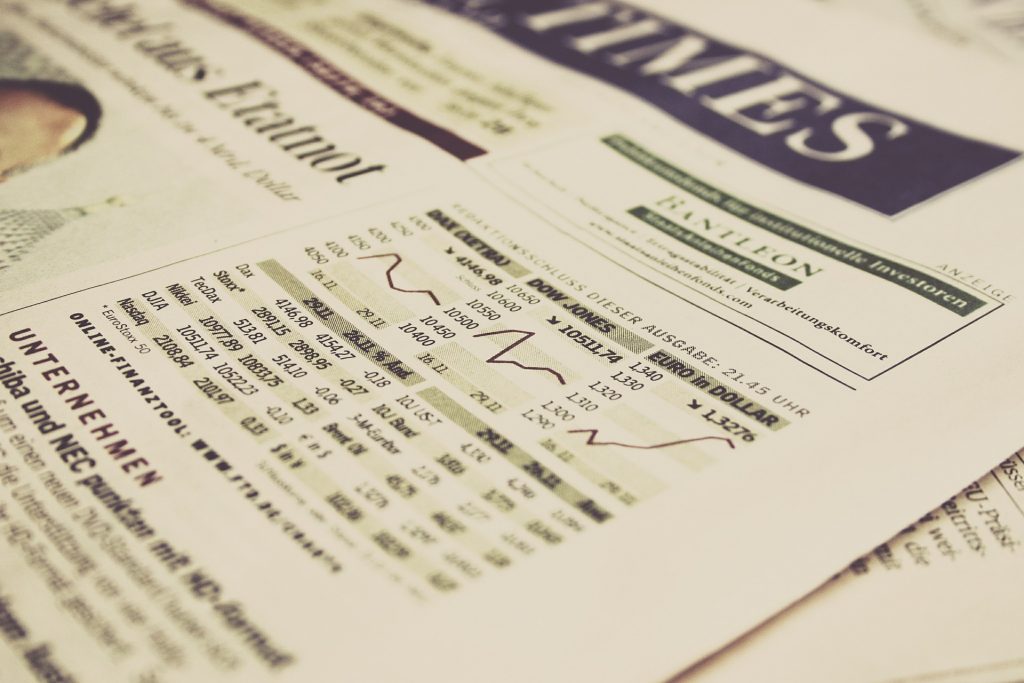As you reach into your pocket this week to see if you can afford to hit that pricey New Year’s party, you may have stumbled into one of every year’s most popular resolutions: getting a handle on your money. This is a little guide about investing in Turkey to help out those of you who have decided to put something away this year, without sacrificing too much from everyday life or putting your hard-earned money at too much risk (if you’re looking for Bitcoin tips, search elsewhere!).

You may have read a recent article of ours, How to Save Money in Turkey, which focused on safe, reliable ways to put money away for a rainy day or a big future expense. This guide takes that a bit further, and is intended for those of you who don’t have too many financial responsibilities (e.g. school tuition for the kids, mortgage or car payments) and are thinking instead about cutting down on a night out a week, or a pricey coffee a day, and putting it towards a little nest egg.
The three investment options outlined in this guide are a bit riskier than your average savings account or government bonds, but bring the possibility of earning more over the year than you’ll lose to inflation (everything’s always getting more expensive, right?). All three are available through online banking, and don’t require any minimum commitment, so you can save bit by bit, or just dump some in whenever it’s burning a hole in your pocket.
Mutual Funds
An investment company, a bank for example, will pay a manager to buy up some stocks or other assets from a variety of companies. They then bundle these up and sell you bits of that bundle. Think of it like buying an assorted pack of candy for a friend, rather than just one type. There’s a much better chance there will be something in there that they’ll like, right?
Because you aren’t buying a piece of one company, but rather a lot of little pieces of a lot of companies, the overall risk (e.g. a company goes bankrupt unexpectedly) is much reduced. The magic here is that this is done in one quick, easy transaction, rather than going and buying a little bit of each company’s stock, one by one.

The investment company earns money this way by charging fees, which they take out of the amount that you earn. Almost all funds work this way in Turkey, although this varies in other countries. They use some of those fees to pay the manager, and keep some as profit. This means higher fees overall, but having the manager there to adjust which stocks they hold from time to time could be valuable in a crisis.
In Turkey, you can generally buy mutual funds very easily through online banking by going to the Investment selection and clicking on Mutual funds. Your bank will usually list their own funds prominently, which should offer a variety of options. My advice to you is to go for one called “Balanced”, which means they won’t take on too much risk on exotic assets, e.g. Bitcoin. An example from my bank, Garanti, would be the Garanti Portföy İkinci Değişken Fon (SMART Dengeli Fon) fund.
Once you’ve completed the transaction, your bank will transfer your money to the fund manager, who will buy up extra bits of all the fund assets according to the amount of money you put in. This takes a couple of days. Be careful to plan accordingly, as it also takes a couple days to cash out when you want to sell your funds later.
Index ETFs (Electronically-traded Funds)
Electronically-traded funds (ETFs) are similar to mutual-funds, except that there’s no manager to make adjustments. The investment company selects a series of assets and then just bundles them up to sell. This might seem a little bit risky, but that’s where the “Index” part comes in. Index ETFs are funds that own a little bit of all the companies on the stock market. This spreads the risk around and makes sure that crises in any one company or sector don’t bring the whole thing down.
Since there’s no manager, the fees are also a lot lower. In Turkey, mutual funds usually charge fees of 2-3% on your earnings, whereas ETFs are generally below 1%. Another benefit to ETFs is that they are traded like stocks, which means you can buy and sell them more or less immediately as long as the stock market is open, rather than waiting the one or two business days that it takes with mutual funds.

ETFs are relatively new in Turkey and aren’t that much older elsewhere, so there are only two true Index ETFs I’ve been able to find so far: IST30F and ISY30. They both do the same thing, just from different investment companies. Since they’re offered through the stock market, you should be able to buy them from any Turkish bank. Look for the stocks section on your online banking page and put in one of the two codes above.
Despite the other advantages, ETFs can be a little trickier to buy than mutual funds. Since they’re traded over the stock market, you need to open up a separate investment account with your bank. This means going to your branch and signing a bunch of papers. Once that’s done though, you can buy and sell to your heart’s content, so it may be worth the effort.
Foreign Currency Basket
You may have noticed that most banks charge a yearly fee on all Turkish Lira bank accounts. Not the case with foreign currency, so you’re free to open as many non-lira accounts as your heart desires. Most Turkish banks also feature a large variety of options, from dollars to pounds, to euros, yen, rubles, etc.
Currencies are constantly losing and gaining value relative to each other for a vast variety of reasons. Rather than putting all your eggs in one basket and saving your money in one, it might make more sense to split that money up and buy little amounts of a handful. This way you can spread the risk around, much as with mutual funds and ETFs. If one country suffers an economic crisis, their currency might go down, but others might go up due to good economic news.

Turkish banks also allow you to exchange currencies without converting them back to Lira first. This allows you to buy euros with your dollars when the US is doing well or the EU isn’t, or sell your yen to buy pounds if you’re worried about Brexit. For more information on this, check out the arbitraj section in your online banking menu.
Currency transactions are some of the easiest you can do online, no more complicated than transferring money from one of your accounts to another. They’re also available 24/7 and occur immediately, which is an advantage over the other two options we’ve discussed in this article.
Reminder: Think before you leap!
Investing money is always a risk, and there is always a possibility that investments will lose value, rather than gain. Always take this into account before investing your hard-earned money, and make sure that you are mentally prepared to lose some of it, even if only temporarily.









